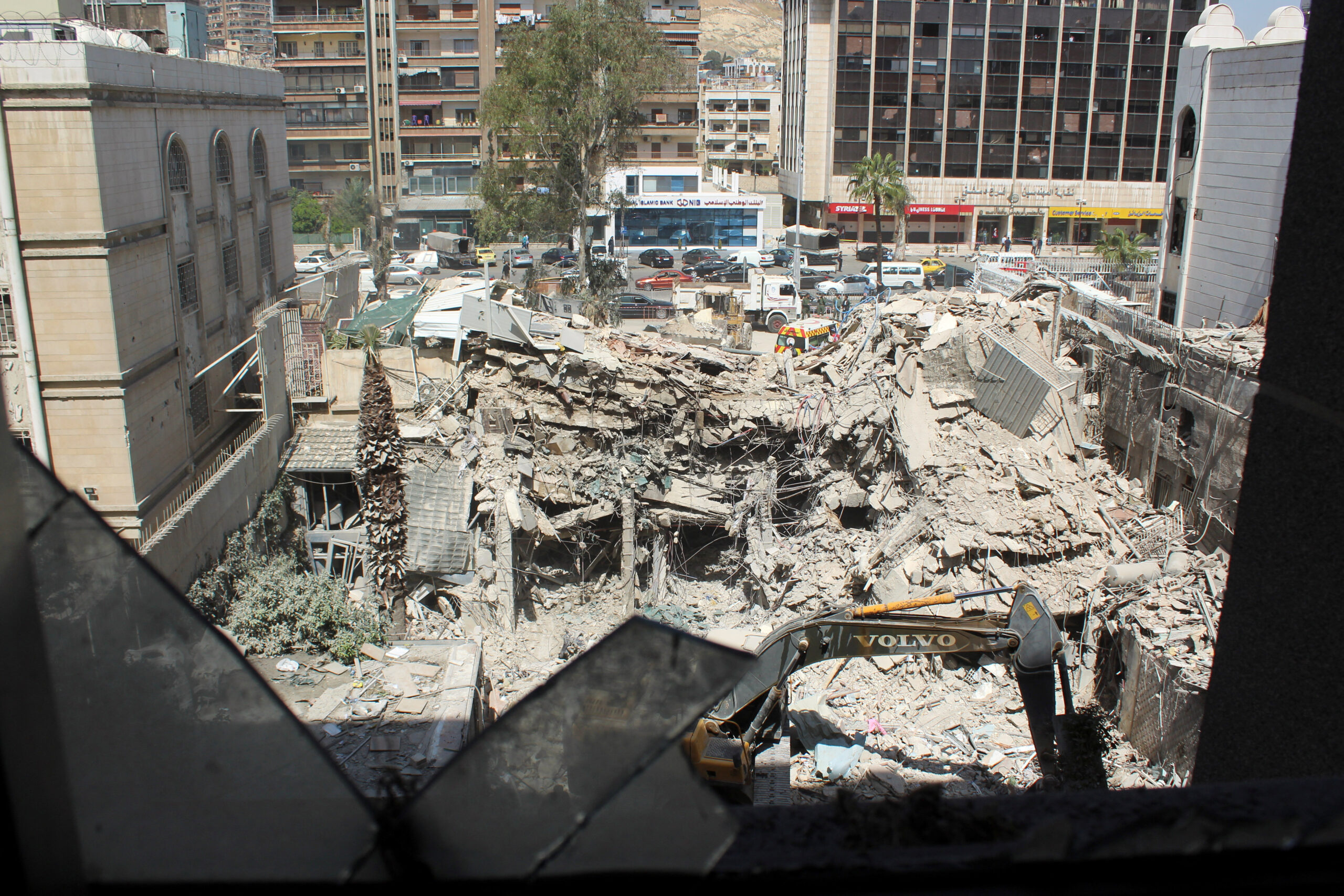
After Israel attacked its embassy in Syria, Iran is faced with a difficult decision over how to respond to the attack without inciting a wider conflict that, according to Middle East observers, Tehran doesn’t seem to want.
The attack on Monday, which took the lives of five military advisors and two Iranian generals at the Iranian embassy complex in Damascus, coincides with Israel’s ongoing campaign of escalation against Iran and the armed organizations it supports. Ayatollah Ali Khamenei, the Supreme Leader of Iran, has sworn retaliation.
Tehran has choices. It might escalate its nuclear program, which the US and its allies have long sought to curtail, or unleash its proxies on US soldiers and use them to target Israel directly.
Speaking on the condition of anonymity, American officials stated that they were keenly observing if, following Monday’s Israeli strike, proxies supported by Iran would target American forces stationed in Iraq and Syria.
Such Iranian attacks came to an end in February following Washington’s dozens of airstrikes on targets in Syria and Iraq connected to Iran’s Revolutionary Guard Corps and militias it supports in retaliation for the death of three U.S. personnel in Jordan.
READ ALSO: In order to prevent asset seizures, Trump posts a $175 million bond in a civil fraud prosecution
Following Monday’s strike, which Iranian media claimed killed IRGC personnel including Brigadier General Mohammad Reza Zahedi, U.S. authorities stated they had not yet received intelligence indicating Iran-backed militants were planning an attack on U.S. troops.
On Tuesday, the US issued a strong warning to Tehran not to assault its forces.
Deputy U.S. Ambassador to the U.N. Robert Wood declared, “We will not hesitate to defend our personnel and repeat our prior warnings to Iran and its proxies not to take advantage of the situation… to resume their attacks on U.S. personnel.”
STOPPING OUTRIGHT WAR
According to a closely following source who requested to remain anonymous, Iran is confronted with the difficult decision of whether to respond to stop more Israeli strikes without going all out for war.
“They have faced this real dilemma that if they respond they could be courting a confrontation which they clearly don’t want,” he stated. “They are trying to modulate their actions in a way that shows that they are responsive but not escalatory.”
He went on, “If they don’t respond in this case, it really would be a signal that their deterrence is a paper tiger,” implying that Iran may strike Jewish institutions overseas or Israel itself.
Given the importance of the Israeli hit, the U.S. official stated Iran might be compelled to attack Israeli interests in retaliation rather than pursue American troops.
Middle East specialist Elliott Abrams of the American think tank Council on Foreign Relations added that he thought Iran might target Israeli interests rather than seek a full-scale conflict with Israel.
“I believe Iran does not wish to have a major Israel-Hezbollah conflict at this time, so any reaction will not take the form of a major Hezbollah action,” Abrams stated, alluding to the Lebanese organization seen to be Tehran’s most potent military operative.
“They have many other ways to respond … for example by trying to blow up an Israeli embassy,” he stated.
Iran may potentially retaliate by stepping up its nuclear program, which it has been doing since former US President Donald Trump pulled out of the 2015 agreement intended to limit it in exchange for financial advantages in 2018.
However, the two most drastic measures—bringing its enriched uranium back to bomb grade purity at 90% or restarting work on designing a real weapon—could backfire and provoke strikes by the United States or Israel.
“The United States and Israel would regard either of those as an acquisition of a weapon. They are thus genuinely taking a significant risk. Are they prepared to act? I don’t think so,” the person who closely monitors the matter stated.
The head of the Middle East program at the Washington-based CSIS think tank, Jon Alterman, stated he does not anticipate a significant Iranian reaction to the attack on its embassy.
“Iran is less interested in teaching Israel a lesson than (in) showing its allies in the Middle East that it isn’t weak.”
Editing by Don Durfee and Cynthia Osterman; reporting by Idrees Ali in Washington and Arshad Mohammed in Saint Paul, Minn.



